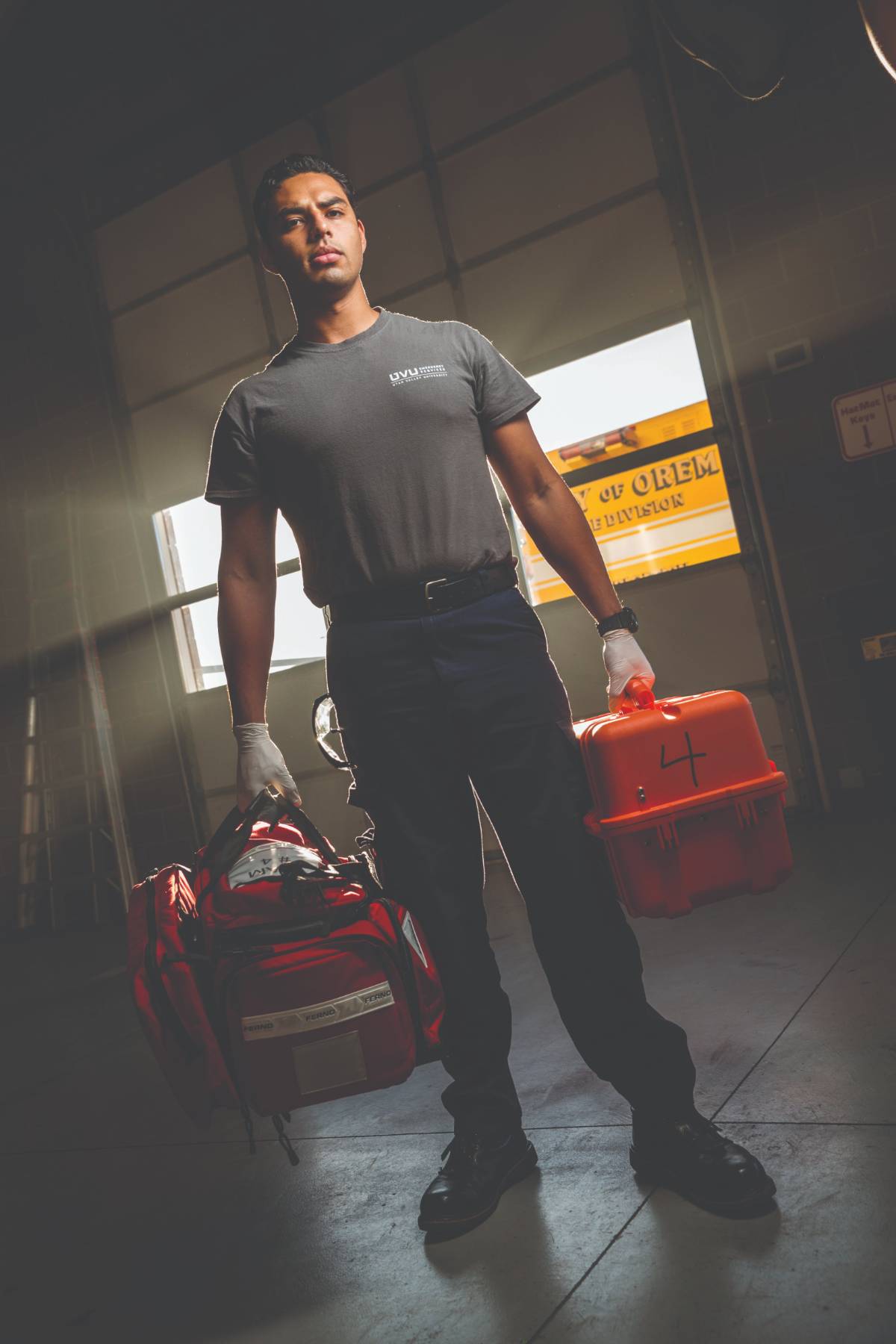Our nationally and state accredited paramedic program has been training future paramedics for 20 years. As a paramedic, you will be a member of the Emergency Medical Services system that provides Advanced Life Support (ALS) to the acutely ill and critically injured.
Students enrolled can expect to learn skills that will save lives. Some skills within the scope of practice include intravenous access, medication administration, advanced airway access, and EKG interpretation.
Engaged Learning
Field Experienced Instructors
Facilities / Equipment
Employment of EMTs and paramedics is projected to grow seven percent from 2018 to 2028, faster than the average for all other occupations. Emergencies, such as car crashes, natural disasters, and acts of violence, will continue to require the skills of EMTs and paramedics.
In Utah, the average salary for a paramedic is nearly $52,000. It's a great career for people who like to use clinical thinking, patient care skills, and innovative problem-solving. Many paramedics thrive on pressure and consequences. When stakes are high, paramedics meet the call and make a difference.
For many, being a paramedic meets their career goals, but others use it as a launching pad to different careers within healthcare.
Students admitted to the UVU Paramedic program are expected to be able to complete
curriculum requirements which include physical, cognitive, and affective core competencies
that are essential to the functions of the entry level EMS provider. These core competencies
are considered the minimum and essential skills necessary to protect the public. These
abilities are encountered in unique combinations in the provision of safe and effective
EMS care. Progression in the program may be denied if a student is unable to demonstrate
the technical standards with or without reasonable accommodations.
The School of Emergency Services is obliged to provide reasonable accommodations to
qualified students with disabilities, which may include academic adjustments, auxiliary
aids, and/or program modifications. Accommodations that fundamentally alter the nature
of the academic program, could jeopardize the health and safety of others, or cause
an undue burden to the program are not considered reasonable accommodations.
The full-time program runs eight months (two semesters) and totals approx. 1,416 hours of core curriculum and clinical time.
Full-time program start dates are in January and August each year.
Semester 1: Classes are held Monday through Friday from 8 a.m. - 5 p.m. at the UVU Lehi Campus, 2889 West Ashton Blvd, Lehi UT 84043
The class schedule is based on the fire department 48/96 shift schedule. For the first semester half of the class will come on A & C shift days and the other half of the class will come on B & C shift days.
Semester 2: Clinical rotations. Times and locations will vary during the semester.
During clinical rotations, students are given experience in Specialty Care and Level I and Level II Trauma Centers. These rotations give students an opportunity to build their network and their resume. Students also undergo intensive classroom and skill training utilizing hybrid learning platform and simulation labs — all with excellent equipment support.
Students will earn a total of 31 credits for the two semester program. Credit earned can be applied to degrees and certificates below:
Tuition:
Undergraduate Tuition: tuitionandfees24-2025.pdf (uvu.edu)
Lab fees approximately $1,185.00 (subject to change) total for both semesters.
The following fees are not covered by the tuition and fees for Utah Valley University and not covered in the Paramedic program student fees.
Uniform required for the program:
National Registry Test: $175
Upon receiving recommend for National Registry Testing, the fee is due.
